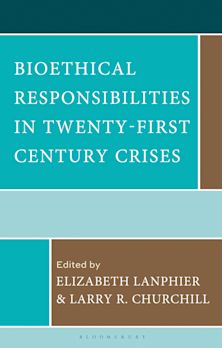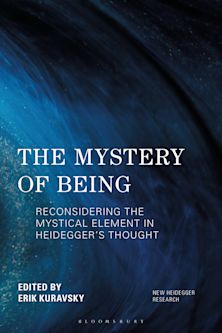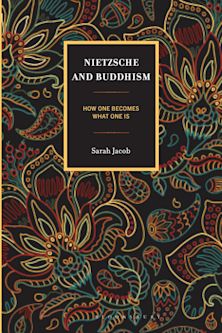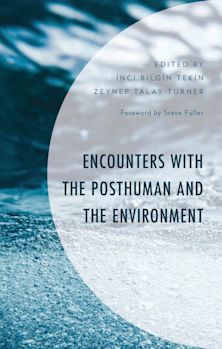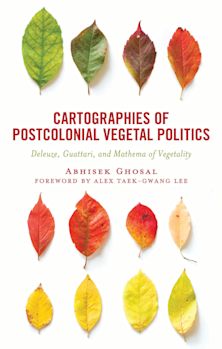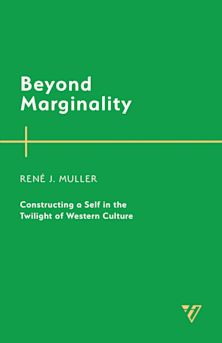- Home
- ACADEMIC
- Philosophy
- Philosophy - Other
- End of the World
This product is usually dispatched within 2-4 weeks
- Delivery and returns info
-
Flat rate of $10.00 for shipping anywhere in Australia
You must sign in to add this item to your wishlist. Please sign in or create an account
Description
Famine. Extreme climate change. Threats of global war and nuclear annihilation. Obscene wealth disparities. Is civilization destined for self-annihilation? In this timely book, philosopher and psychoanalyst Jon Mills explores the emergencies that could ignite an apocalypse. As we idly stand by in the face of ecological, economic, and societal collapse, we must seriously question whether humanity is under the sway of a collective unconscious death wish. Examining ominous existential risks and drawing on the psychological motivations, unconscious conflicts, and cultural complexes that drive human behavior and social relations, he offers fresh new perspectives on the looming fate of humanity based on a collective bystander disorder.
End of the World is a warning about the dangerous precipice we find ourselves careening toward and a call to action to take control of our own fate.
Table of Contents
Prolegomenon: On the Brink of Extinction
1: Here on Earth
A Promise of Hope
Global Bystanders in the Face of Ecological Crisis
The Revenge of Gaia
Too Big to Fix
2: Ten Billion
What Can We Learn from Rats?
Overpopulation and the Food Supply
Withering Water
The Worse Is Yet to Come: Pandemics, Economic Paralysis, and Societal Collapse
3: The Evil That Men Do
The Need to Kill
The Ontology of Prejudice
On the Universality of Evil
The Ethics of Killing
Institutionalized Evil
4: The Doomsday Clock is Ticking
Dropping the Bomb
The Doomsday Argument
Existential Risks
Should We Take the Doomsday Argument Seriously?
Our Final Century?
5: Apocalypse Now
On Sin
Apocalypse, Millennialism, and Eschaton
The (un)Holy Land
Apocalyptic Discourse in Post-Millennial Culture
Futuristic Fantasies
Disparities
The New After
6: Global Catastrophic Risks
Defining Risk
Big-Picture Hazards
Economic Disintegration
Techno Nihilism
Superintelligences
7: A World without Recognition
The Need to Be Acknowledged
Dysrecognition as Social Pathology
Unconscious Politics and the Other
A Failure of Empathy
Transgenerational Transmission of Trauma
8: Living in the End Times
From the Plague to a Plastic Island
The Doomsday Vault
It Took a Child
Predicting the Future
Democracy Incorporated
From Catastrophe to Renewal
Environmental Conflict and Peacebuilding
The Last Resistance
References
Index
About the Author
Product details
| Published | 04 Jun 2024 |
|---|---|
| Format | Hardback |
| Edition | 1st |
| Extent | 258 |
| ISBN | 9781538189009 |
| Imprint | Rowman & Littlefield |
| Illustrations | 1 BW Illustration |
| Dimensions | 237 x 159 mm |
| Publisher | Bloomsbury Publishing |
Reviews
-
We are in a unique period in history in which we are simultaneously capable of understanding species extinction—including our own, which could be self-inflicted—and able to do something about it. Will we? In this engrossing account of the many existential threats we face—nuclear weapons are especially terrifying—Jon Mills outlines the problems and possible solutions. A must-read for anyone who cares about the future of Homo sapiens, in which we do not always seem so wise . . . but we could be.
Michael Shermer, publisher of Skeptic magazine and author of Conspiracy: Why the Rational Believe the Irrational
-
This book is a careful examination of the possible future of mankind. With examples from many parts of the world the reader learns about risk factors such as global warming, industrial pollution, overpopulation, food and water scarcity, infectious diseases and our not having oversight or the ability to control or regulate technological sources. The role of individual and large-group psychology, collective traumas, transgenerational transmissions and the prejudicial unconscious factors leading to wealth and social divisions, racism, wars and war-like situations are also explored soberly in thinking about what may occur. The author refers to collective moral actions for a better future and mentions that what we can do for the planet as individuals is fairly insignificant. However, what he has done as a single person by writing this timely book is very significant.
Vamik D. Volkan, University of Virginia, author of Enemies on the Couch: A Psychopolitical Journey Through War and Peace
-
Warnings of the end of the world are plentiful today. Jon Mills has not written another such warning. Instead, he has delved into the psychic barriers that have prevented people from taking action to fight widespread planetary devastation. End of the World is not just a stunningly insightful analysis of our capacity for unconscious self-destruction. There is an urgency attached to this book because it makes clear exactly why we aren’t equal to the catastrophe and how we might begin to respond to our own self-destructiveness. Sadly, given the state of things, this book qualifies as simply unavoidable.
Todd McGowan, professor, University of Vermont; author of Capitalism and Desire
-
Are we not currently witnessing a strange paradox? On the one hand, there is an increasing consciousness about the manifold dangers that threaten the future of human life on this planet. Yet on the other hand, there is decreasing readiness for action, and ever less ability to find solutions. Fear of death appears to paralyze our political capabilities. Now, as Sigmund Freud has taught us, it is precisely our disavowal of death that makes us so fearful of it.
As a psychoanalyst, Jon Mills is experienced with the mechanism of disavowal. His point therefore is not that we will die, but how our lives are affected by ecological damages. Thus, Jon Mills wisely circumvents the pitfalls of rigid panic. Instead, he redirects our displeasure to the precise point where it can translate into concrete political action. This is in accordance with a principle once formulated by poet Bertolt Brecht: political change is only possible for those who fear bad life more than death.Robert Pfaller, author of On the Pleasure Principle in Culture and Interpassivity
-
I am a possibilist and optimist by heart and intellectual conviction, and I recognize the wonderfulness of the human being, their achievements and conquests, but the future of humanity is not predetermined. The current course or trajectory we have taken apparently puts us in grave danger. John Mills tells us, through a rich array of historical, philosophical, and psychoanalytic sources, of the genealogy of causes (from instant gratification at the individual level to the economic organization of our societies) of the existential risks and threats of global catastrophe that humanity faces. It is in our hands, or perhaps in the hands of our children, grandchildren, or great-grandchildren, to act wisely and correct this course. This book can help us do that.
Aníbal M. Astobiza, University of the Basque Country; author of Tecnofilosofía: Nuestra Relación con las Máquinas
-
As humans, we are all on this giant ball of confusion, ill-fated with the assignment of trying to figure it out. We must contend not only with the existential angst that death is eminent but also the dread that this 'thing' has spun out of control—that the earth itself is on its way to hell in a handbasket. Alas, we cry, if only it would stop to allow us to exit, unbeknownst that while traveling at a constant speed of approximately 1,040 miles per hour at its equator, if the earth were to suddenly stop, in addition to a cataclysmic earth shattering, it would violently catapult us into space. One way or another, this book speaks to our demise and yet in the meantime we live. Jon Mills masterfully yet poignantly writes, not to exacerbate our preexisting fears but rather to illuminate our consciousness, to the conceivable looming of the end of the world.
Nathaniel Granger Jr., PsyD, past president, Society for Humanistic Psychology; editor, University Professors Press

ONLINE RESOURCES
Bloomsbury Collections
This book is available on Bloomsbury Collections where your library has access.













